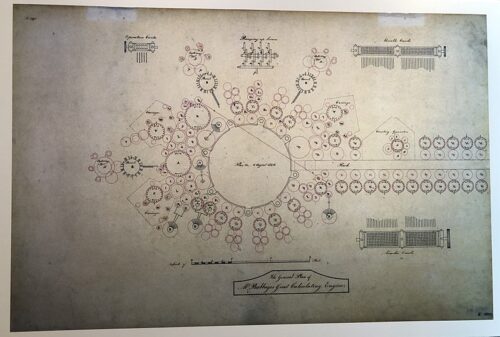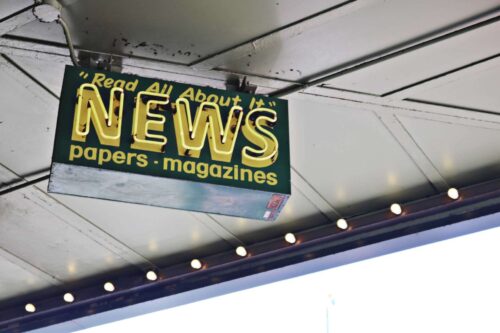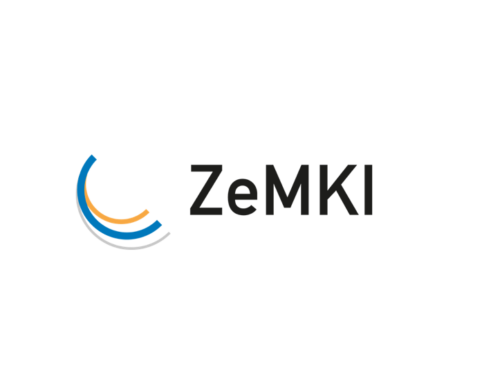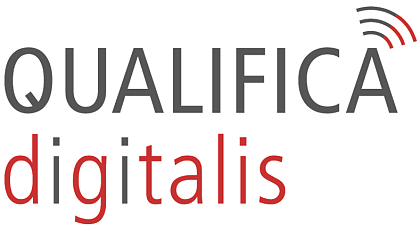
Projects (5)

- Completed
Imaginaries of Artificial Intelligence: The Communicative Construction of AI in China, Germany and the US
Partner: Institute for Communication and Media Research at the University of Zurich Funding: Swiss National Science Foundation (SNSF) & German Research Foundation (DFG) Artificial intelligence (AI) is considered a key technology in today’s societies. Political and economic actors in many countries have allocated considerable resources to AI development, and the technology is the subject of (…)
- Duration: 2021 – 2025
- Project lead: Prof. Dr. Christian Katzenbach

- Completed
Shaping 21st Century AI – Controversies and Closure in Media, Policy and Research
Team: Prof. Dr. Christian Katzenbach, Dr. Anna Jobin, Laura Liebig, Licina Güttel Partners: Medialab at Sciences Po, Paris, Centre for Interdisciplinary Methods (CIM) at the University of Warwick, and the NENIC Lab at INRS Montreal, as well as the Algorithmic Media Observatory at Concordia University Funding: Open Research Area (ORA) funding line from DFG, ANR, (…)
- Duration: 2021 – 2024
- Project lead: Prof. Dr. Christian Katzenbach

- Completed
Remixing Political News Reception
Funded by: German Research Association (DFG) Images not only present information differently from article texts, they are also perceived differently by recipients in sensory terms, processed differently in affective and cognitive terms and can therefore trigger specific effects. Although the use of images to convey political information has a long historical tradition and images are (…)
- Duration: 2020 – 2025
- Project lead: Prof. Dr. Stephanie Geise

- Completed
Film History, Latin America and the Transatlantic Circulation of Knowledge
Film history, Latin America and the transatlantic circulation of knowledge: Paulo Emílio Salles Gomes’ international network Head: Dr. Ricardo Borrmann Funding: Central Research Department (ZF) of the University of Bremen This project examines the role of Latin American intellectuals and transatlantic knowledge circulation in film history by reconstructing the international network of the Brazilian film (…)

- Completed
All is Data. The Search for Knowledge in a digitalized World of Data
All is data focuses on new requirements for educators (i.e. teachers, media educators, school social workers) with regard to the handling of digital data and data education as part of pedagogical action in schools. Team: Prof. Dr. Andreas Breiter, Adrian Roeske, Philipp Krieter Partners: University of Cologne, Technical University of Kaiserslautern Client: Federal Ministry of (…)
- Duration: 2020 – 2023
- Project lead: Prof. Dr. Andreas Breiter

- Completed
UseNews
Project management: Prof. Dr. Cornelius Puschmann The useNews dataset has been compiled to enable the study of online news engagement. It relies on the MediaCloud and CrowdTangle APIs as well as on data from the Reuters Digital News Report. The entire dataset builds on data from 2019 and 2020 as well as a total of (…)
- Duration: 2020 – 2022
- Project lead: Prof. Dr. Cornelius Puschmann

- Active
Platform Governance Archive (PGA)
Project Lead: Prof. Dr. Christian Katzenbach Funding institution: University of Bremen The Platform Governance Archive (PGA) is a project to promote a critical examination of the way platforms organize and govern our communication and activities. The project is a data repository and platform that collects and curates policies of major social media platforms in a (…)
- Duration: 2020
- Project lead: Prof. Dr. Christian Katzenbach

- Completed
Qualifica Digitalis
Team: Dr. Stefan Welling, Prof. Dr. Andreas Breiter, Sabrina Schlachter Partner: Fraunhofer Fokus, FÖV https://www.fokus.fraunhofer.de/raggeber: IT Planning Council The digitalization of public administration is changing structures, processes and work culture. Employees must be prepared for these changes and their consequences through appropriate training and further education. This presents public administration employers and the associated training (…)
- Duration: 2020 – 2022
- Project lead: Prof. Dr. Andreas Breiter

